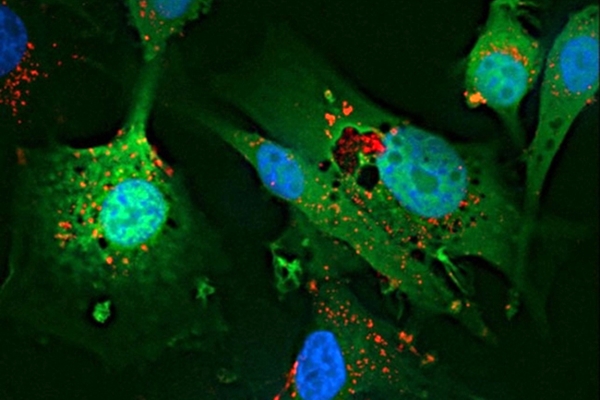4 August 2016. The biotechnology company DNAtrix is receiving a grant from U.S. Food and Drug Administration to support a clinical trial of its virus-delivered immunotherapy to treat an aggressive form of brain cancer. The $2 million award is part of FDA’s support of new therapies for rare diseases, in this case glioblastoma.
Glioblastoma is a cancer that forms in the brain’s glial cells, the cells that support the functioning of neurons in the brain sending and receiving nerve signals. The cancer generally grows and spreads quickly, often resulting death within 15 months of diagnosis. American Association of Neurological Surgeons estimates glioblastoma, also known as glioblastoma multiforme, occurs in 2 to 3 out of 100,000 adults per year, and accounts for 52 percent of all primary brain tumors.
DNAtrix, in Houston, develops treatments for cancer that harness the immune system, which cancer cells normally bypass, allowing them to proliferate unchecked. The company’s technology engineers adenoviruses, hardy and ubiquitous viruses in humans and animals that cause infections, but with few, if any, symptoms. With adenoviruses, DNAtrix alters their genomes to cause infections only in tumor cells, but adds integrins, a class of proteins that attach cell skeletons to their extracellular matrix, to bolster their binding power.
DNAtrix’s lead product, code-named DNX-2401, is an engineered adenovirus designed to infect and replicate in tumor cell targets, inducing a chain reaction infecting other tumor cells. At the same time, the dying tumor cells release viral matter, antigens, and other proteins that activate T-cells in the immune system to attack and destroy tumor cells. The company says early-stage clinical trials verify the therapy mechanism of DNX-2401 and show the treatments are well tolerated.
The clinical trial supported by FDA plans to enroll 48 individuals with recurring glioblastoma to test DNX-2401 given with infusions of pembrolizumab, an engineered antibody and checkpoint inhibitor marketed as Keytruda by Merck, approved to treat some types of lung and skin cancer. Twelve of the 48 participants will test different dosage levels of DNX-2401 with Keytruda.
The trial is looking primarily at responses of participants to the treatments, defined by reductions in tumor size as shown in MRI scans. The study is also evaluating the overall survival period, time needed to generate a response from the treatment, and the duration of that response. Participants will be monitored for 42 months.
FDA provides a limited number of grants for drugs, biologics, and medical devices designed to treat so-called orphan diseases, disorders affecting fewer than 200,000 people in the U.S. DNX-2401 already received from FDA orphan drug designation, making the company eligible for incentives such as tax credits for clinical trials and exemptions from marketing application fees, as well as a comparable designation in Europe. The company also received fast-track status from FDA, providing for expedited review of DNX-2401.
Read more:
- Amgen, Advaxis Partner on Personal Cancer Immunotherapy
- Moderna, Merck Partner on Personal Cancer Vaccines
- Engineered T-Cells Get Leukemia Response
- Therapy Shown to Boost Immune System Against Cancer
- Microneedle Patch Delivers Melanoma Immunotherapy
* * *


 RSS - Posts
RSS - Posts
[…] FDA Funding Brain Tumor Treatment Trial […]